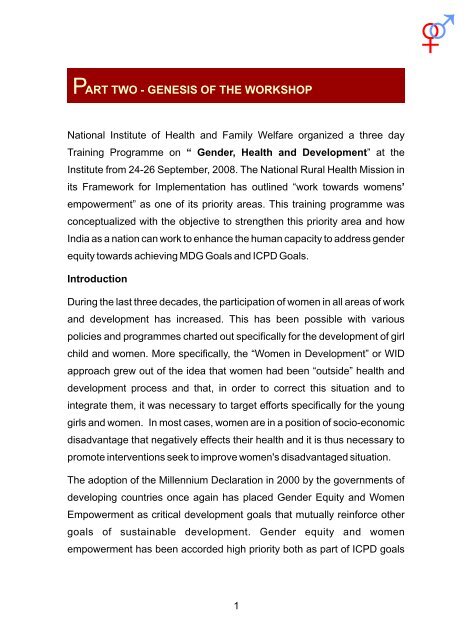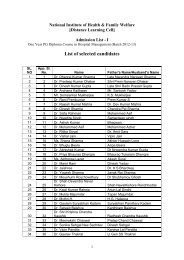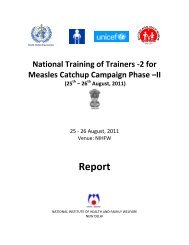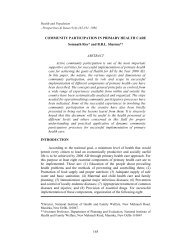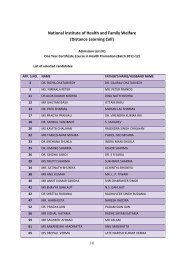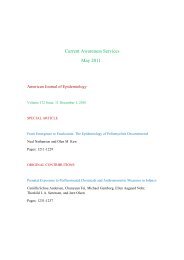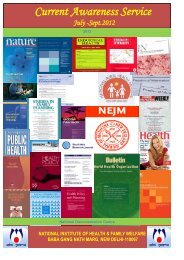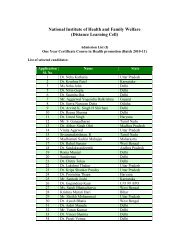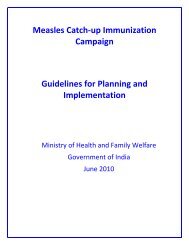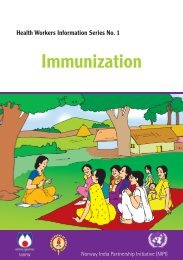Final Report.CDR - National Institute of health and family welfare
Final Report.CDR - National Institute of health and family welfare
Final Report.CDR - National Institute of health and family welfare
You also want an ePaper? Increase the reach of your titles
YUMPU automatically turns print PDFs into web optimized ePapers that Google loves.
PART TWO - GENESIS OF THE WORKSHOP<br />
<strong>National</strong> <strong>Institute</strong> <strong>of</strong> Health <strong>and</strong> Family Welfare organized a three day<br />
Training Programme on “ Gender, Health <strong>and</strong> Development” at the<br />
<strong>Institute</strong> from 24-26 September, 2008. The <strong>National</strong> Rural Health Mission in<br />
its Framework for Implementation has outlined “work towards womens’<br />
empowerment” as one <strong>of</strong> its priority areas. This training programme was<br />
conceptualized with the objective to strengthen this priority area <strong>and</strong> how<br />
India as a nation can work to enhance the human capacity to address gender<br />
equity towards achieving MDG Goals <strong>and</strong> ICPD Goals.<br />
Introduction<br />
During the last three decades, the participation <strong>of</strong> women in all areas <strong>of</strong> work<br />
<strong>and</strong> development has increased. This has been possible with various<br />
policies <strong>and</strong> programmes charted out specifically for the development <strong>of</strong> girl<br />
child <strong>and</strong> women. More specifically, the “Women in Development” or WID<br />
approach grew out <strong>of</strong> the idea that women had been “outside” <strong>health</strong> <strong>and</strong><br />
development process <strong>and</strong> that, in order to correct this situation <strong>and</strong> to<br />
integrate them, it was necessary to target efforts specifically for the young<br />
girls <strong>and</strong> women. In most cases, women are in a position <strong>of</strong> socio-economic<br />
disadvantage that negatively effects their <strong>health</strong> <strong>and</strong> it is thus necessary to<br />
promote interventions seek to improve women's disadvantaged situation.<br />
The adoption <strong>of</strong> the Millennium Declaration in 2000 by the governments <strong>of</strong><br />
developing countries once again has placed Gender Equity <strong>and</strong> Women<br />
Empowerment as critical development goals that mutually reinforce other<br />
goals <strong>of</strong> sustainable development. Gender equity <strong>and</strong> women<br />
empowerment has been accorded high priority both as part <strong>of</strong> ICPD goals<br />
1


